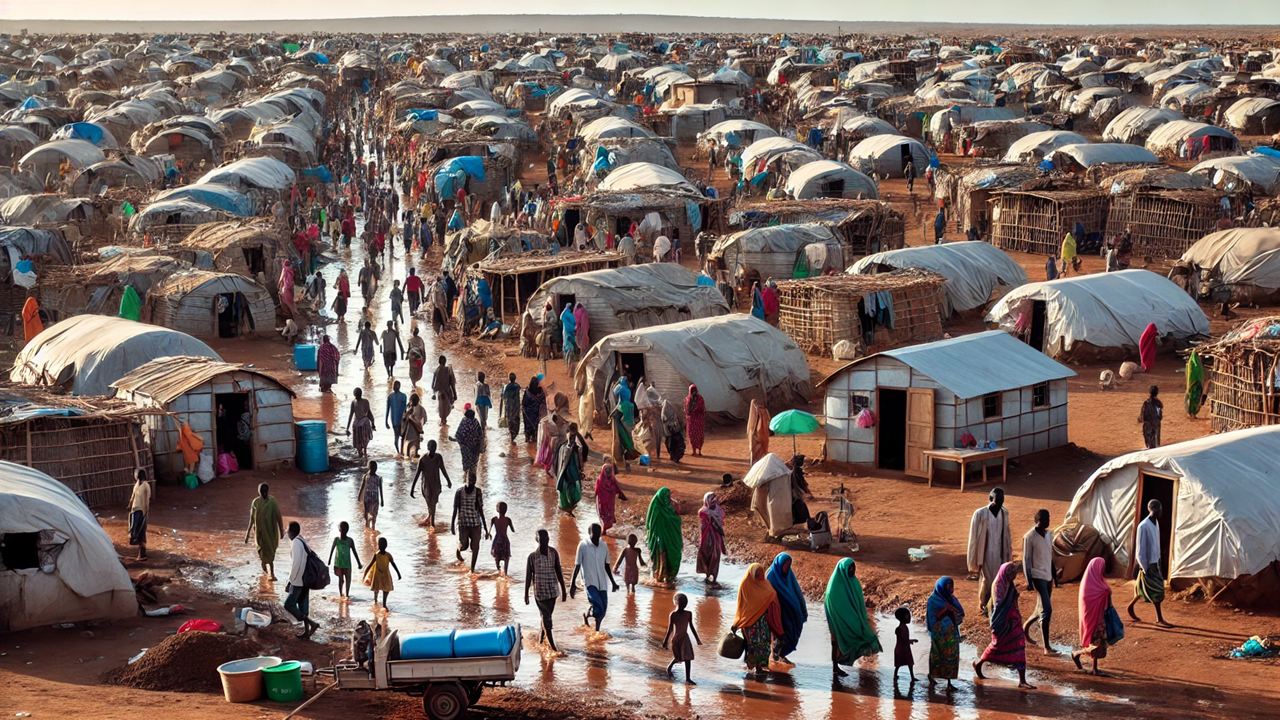UNICEF Warns of Deepening Humanitarian Crisis in Eastern DR Congo
“The situation in Goma is extremely grave and further complicates an already catastrophic humanitarian scenario,” said Jean Francois Basse, UNICEF DRC’s Acting Representative.

UNICEF has expressed grave concern over the rapidly worsening humanitarian crisis in eastern Democratic Republic of the Congo (DRC), where intensified conflict has led to a massive displacement of people, particularly in North Kivu and South Kivu provinces. The past three months alone have seen at least 658,000 additional people forced from their homes, including at least 282,000 children.
The volatile security situation has reached alarming levels, with fighting advancing towards Goma, the capital of North Kivu province. Thousands of families, fearing for their safety, have fled displacement camps on the northern and western outskirts of the city, moving into the center of town. Many of these individuals are experiencing displacement for the third, fourth, or even fifth time in just a matter of weeks.
“The situation in Goma is extremely grave and further complicates an already catastrophic humanitarian scenario,” said Jean Francois Basse, UNICEF DRC’s Acting Representative. “People have endured traumatic events, and they are hungry, thirsty, and exhausted. Families are sheltering in place to avoid being caught in the violence, and basic services have collapsed. Electricity, water, and internet services have all been cut. It is impossible to overstate the suffering of children and their families.”
Health and Protection Risks for Children
Children are facing dire health and protection risks as the situation deteriorates. Overcrowded and unsanitary living conditions in displacement areas have significantly increased the spread of diseases, including cholera, measles, and mpox. With medical facilities overwhelmed, many parents are reluctant or unable to seek medical help for their sick children due to the dangers of traveling through conflict zones and the severe shortage of hospital beds and medical supplies.
UNICEF has also reported a disturbing surge in cases of children being separated from their parents or left unaccompanied. These children face heightened dangers, including abduction, recruitment by armed groups, and sexual violence.
UNICEF’s Humanitarian Response and Urgent Funding Appeal
In response to the escalating crisis, UNICEF is urgently calling for $22 million in additional funding to sustain and expand its life-saving humanitarian response. This funding would support:
-
The provision of clean water and proper sanitation facilities to prevent the spread of waterborne diseases.
-
Medical assistance, including medications and essential medical supplies, to treat injured and sick individuals.
-
Emergency nutritional support for children suffering from severe malnutrition.
-
Protection services for vulnerable children, including efforts to reunite them with their families and provide psychological support.
Despite these efforts, access to affected areas remains a significant challenge due to ongoing violence and insecurity. Humanitarian workers continue to operate under extreme conditions, risking their safety to deliver critical aid.
Call for Ceasefire and Protection of Civilians
UNICEF is urging all parties involved in the conflict to immediately cease hostilities and prioritize the protection of civilians, particularly children.
“Ultimately, we need an end to the military escalation, which is exacerbating the suffering of children and worsening the already appalling humanitarian conditions,” Basse emphasized. “The international community must act swiftly to prevent further devastation and ensure that aid reaches those who need it most.”
The situation remains fluid, and urgent action is required to avert further suffering. UNICEF continues to work closely with humanitarian partners to provide relief, but additional support is needed to respond effectively to the unfolding crisis.
- READ MORE ON:
- UNICEF
- Jean Francois Basse
- Goma
- Democratic Republic of the Congo










